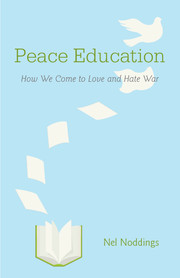1 - The Centrality of War in History
Published online by Cambridge University Press: 05 December 2011
Summary
There can be no doubt about the centrality of war in the history of nations. History has very nearly been equated with accounts of war. Indeed, Francis Fukuyama claimed that, with the widespread embrace of liberal democracy, war between nations has become unlikely and, with no more war, history itself would end. Although minor wars and civil skirmishes will continue, the existential threat to democracy has ended. The response to this pronouncement has been varied – many denying that war has become obsolete – but the centrality of war in history has not been challenged. Samuel Huntington has warned that the next wars will be “clashes of civilizations” and their defining religions, not the traditional wars between politically defined nations. And Robert Kagan has described a frightening resurgence of national interests and military competition – a “return of history.” For those of us who would like to define future history in terms of peace, these are not encouraging signs.
One might challenge Fukuyama’s thesis in several ways. Huntington’s clash of civilizations is a possibility. Kagan’s resurgence of military nationalism is another. But the degeneration of one or more democracies is still another possibility. Liberal democracies are not always stable; we can’t count on the proliferation of such democracies to guarantee the end of war. It does seem right to claim that older democracies are likely to be more stable, but this is almost a tautology. And perhaps many contemporary democracies contain seeds of discontent comparable to those that made Germany susceptible to Nazism. But, of course, it was war – World War I and the oppressive peace that followed it – that tipped the balance and opened the political door to Hitler. War begets war. With all the explanations, it is still baffling and chilling to think how a nation so advanced in literature, philosophy, art, music, religious thought, and industry could accept National Socialism. But it is clear that fledgling democracies can be derailed by tragic occurrences.
- Type
- Chapter
- Information
- Peace EducationHow We Come to Love and Hate War, pp. 8 - 20Publisher: Cambridge University PressPrint publication year: 2011



